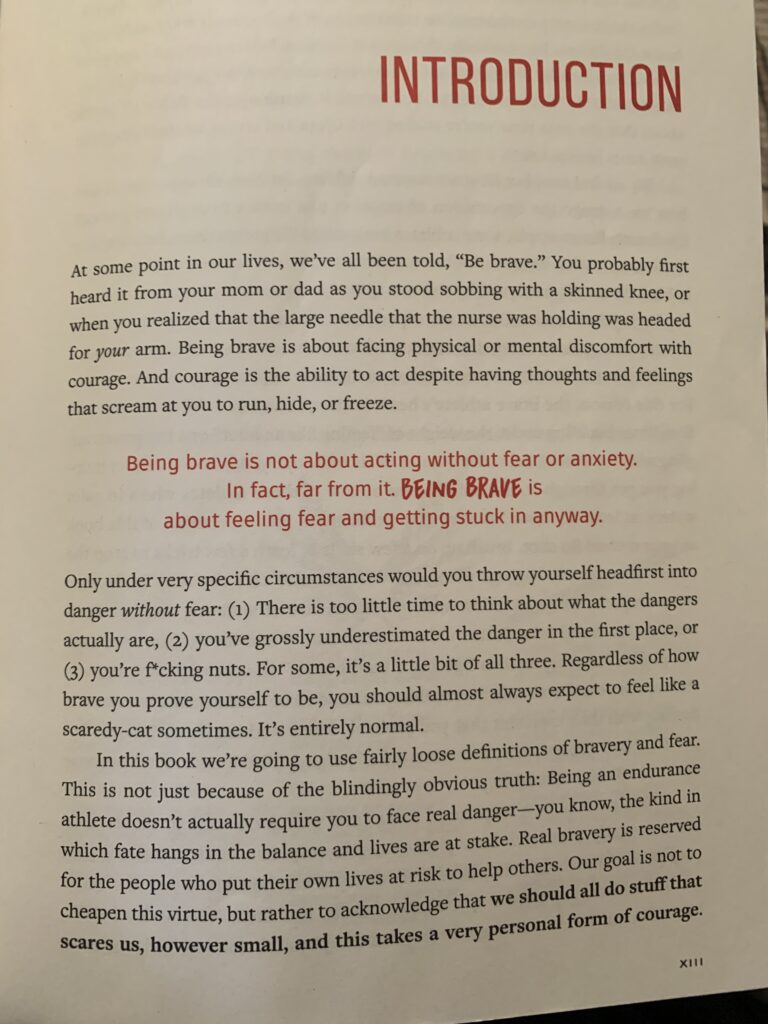I was going to write a review on this excellent read, 12 Rules for Life, but this review from Amazon about covers it all.
————————————
and from another favorite book on being positive:
Be positive! Make a promise to yourself to be as positive as you can possibly be. Make a promise to yourself to be more positive than you’ve ever been in your life. At the beginning of each day promise yourself: “Today, wherever I go and whatever I’m doing, I will be positive!” Being positive means that you will look for the positive things in people, circumstances, and all things. Being positive means that if any negative words come out of your mouth, you will stop mid-sentence and immediately turn the sentence into a positive one. Being positive means that you will have fewer negative emotions, and even if a negative emotion arises you will be positive about it too by allowing the negative emotion to be rather than trying to push it away. Being positive means that you will automatically focus on what you want, not on what you don’t want. Being positive means that you will become an attractive force for what you want. Being positive means that negative thoughts and words will begin to fall away. Being positive means that you will begin to feel happier and happier each day. Being positive means that you will have fewer problems. Being positive means that life will go smoothly for you, everyday events will fall into place, and things will go your way. Being positive means that you will feel good!
Be Grateful – Change Your Life
Today, be grateful. Be grateful for your favorite music, for movies that make you feel good, for your phone that connects you with people, for your computer, and for the electricity that lights up your life. Be grateful for air travel that flies you everywhere. Be grateful for the roads and traffic lights that keep the traffic in order. Be grateful to those who built our bridges. Be grateful for your pet, for your child, for your loved ones, for your eyes that enable you to read this. Be grateful for your imagination. Be grateful that you can think. Be grateful that you can speak. Be grateful that you can laugh and smile. Be grateful that you can breathe. Be grateful that you are alive! Be grateful that you are You! Be grateful that there are two words that can change your life.
Forgiving others is essential for spiritual growth. Your experience of someone who has hurt you, while painful, is now nothing more that a thought or feeling that you carry around. These thoughts of resentment, anger, and hatred represent slow, debilitating energies that will dis-empower you if you continue to let these thoughts occupy space in your head. If you could release them, you would know more peace.
How to forgive someone who has hurt you in 15 steps:
Step 1: Move On to the Next Act
Your past history and all of your hurts are no longer here in your physical reality. Don’t allow them to be here in your mind, muddying your present moments. Your life is like a play with several acts. Some of the characters who enter have short roles to play, others, much larger. Some are villains and others are good guys. But all of them are necessary, otherwise they wouldn’t be in the play.Embrace them all, and move on to the next act.
Step 2: Reconnect to Spirit
Make a new agreement with yourself to always stay connected to Spirit even when it seems to be the most difficult thing to do. If you do this, you will allow whatever degree of perfect harmony that your body was designed for to proliferate. Turn your hurts over to God, and allow Spirit to flow through you.
Your new agreement with reality in which you’ve blended your physical self and your personality with your spiritual God-connected self will begin to radiate a higher energy of love and light. Wherever you go, others will experience the glow of your God consciousness, and disharmony and disorder and all manner of problems simply will not flourish in your presence. Become “an instrument of thy peace,” as St. Francis desires in the first line of his famous prayer.
Step 3: Don’t Go to Sleep Angry
Each night as I drift off to sleep, I adamantly refuse to use this precious time to review anything that I do not want to be reinforced in the hours of being immersed in my subconscious mind. I choose to impress upon my subconscious mind my conception of myself as a Divine creator in alignment with the one mind. I reiterate my I ams, which I have placed in my imagination, and I remember that my slumber will be dominated by my last waking concept of myself. I am peaceful, I am content, I am love, and I attract only to myself those who are in alignment with my highest ideals of myself.
This is my nightly ritual, always eschewing any temptation to go over any fear of unpleasantness that my ego might be asking me to review. I assume the feeling in my body of those I am statements already fulfilled, and I know that I’m allowing myself to be programmed while asleep, for the next day I rise knowing that I am a free agent.
In sleep man impresses the subconscious mind with his conception of himself. — Neville Goddard
Step 4: Switch the Focus from Blaming Others to Understanding Yourself
Whenever you’re upset over the conduct of others, take the focus off those you’re holding responsible for your inner distress. Shift your mental energy to allowing yourself to be with whatever you’re feeling — let the experience be as it may, without blaming others for your feelings. Don’t blame yourself either! Just allow the experience to unfold and tell yourself that no one has the power to make you uneasy without your consent, and that you’re unwilling to grant that authority to this person right now.
Tell yourself that you are willing to freely experience your emotions without calling them “wrong” or needing to chase them away. In this way, you’ve made a shift to self-mastery. It’s important to bypass blame, and even to bypass your desire to understand the other person; instead, focus on understanding yourself.
By taking responsibility for how you choose to respond to anything or anyone, you’re aligning yourself with the beautiful dance of life. By changing the way you choose to perceive the power that others have over you and you will see a bright new world of unlimited potential for yourself and you will know instantly how to forgive and let go of anything.
Step 5: Avoid Telling People What to Do
Avoid thoughts and activities that involve telling people who are perfectly capable of making their own choices what to do. In your family, remember that you do not own anyone. The poet Kahlil Gibran reminds you: Your children are not your children. They are the sons and daughters of Life’s longing for itself. They come through you but not from you . . .
This is always true. In fact, disregard any inclination to dominate in all of your relationships. Listen rather than expound. Pay attention to yourself when you’re having judgmental opinions and see where self-attention takes you. When you replace an ownership mentality with one of allowing, you’ll begin to see the true unfolding of the Tao in yourself and other people. From that moment on, you’ll be free of frustration with those who don’t behave according to your ego-dominated expectations.
Step 6: Learn to Let Go and Be Like Water
Rather than attempting to dominate with your forcefulness, be like water: flow everywhere there’s an opening. Soften your hard edges by being more tolerant of contrary opinions. Interfere less, and substitute listening for directing and telling. When someone offers you their viewpoint, try responding with: “I’ve never considered that before—thank you. I’ll give it some thought.”
When you give up interfering, and opt instead to stream like water—gently, softly, and unobtrusively— you become forgiveness itself.
Picture yourself as having the same qualities as water. Allow your soft, weak, yielding, fluid self to enter places where you previously were excluded because of your inclination to be solid and hard. Flow softly into the lives of those with whom you feel conflicted: Picture yourself entering their private inner selves, seeing perhaps for the first time what they’re experiencing. Keep this image of yourself as gently coursing water, and watch how your relationships change.
Step 7: Take Responsibility for Your Part
Removing blame means never assigning responsibility to anyone else for what you’re experiencing. It means that you’re willing to say, “I may not understand why I feel this way, why I have this illness, why I’ve been victimized, or why I had this accident, but I’m willing to say without any guilt or resentment that I own it. I live with, and I am responsible for, having it in my life.” If you take responsibility for having the experience, then at least you have a chance to also take responsibility for removing it or learning from it. If you’re in some small (perhaps unknown) way responsible for that migraine headache or that depressed feeling, then you can go to work to remove it or discover what its message is for you. If, on the other hand, someone or something else is responsible in your mind, then of course you’ll have to wait until they change for you to get better. And that is unlikely to occur. So you go home with nothing and are left with nothing when peace is really on the other side of the coin.
Step 8: Let Go of Resentments
What causes annoyance and anger after a dispute? The generic response would be a laundry list detailing why the other person was wrong and how illogically and unreasonably they behaved, concluding with something like, “I have a right to be upset when my [daughter, mother-in-law, ex-husband, boss, or whomever you’re thinking of] speaks to me that way!” But if you’re interested in living a Tao-filled life, it’s imperative that you reverse this kind of thinking. Resentments don’t come from the conduct of the other party in an altercation—no, they survive and thrive because you’re unwilling to end that altercation with an offering of kindness, love, and authentic forgiveness. As Lao-Tzu says: Someone must risk returning injury with kindness, or hostility will never turn to goodwill. — Lao-Tzu. So when all of the yelling, screaming, and threatening words have been expressed, the time for calm has arrived. Remember that no storm lasts forever, and that hidden within are always seeds of tranquility. There is a time for hostility and a time for peace.
Step 9: Be Kind Instead of Right
There is a Chinese proverb, If you’re going to pursue revenge, you’d better dig two graves, which is saying to me: your resentments will destroy you. The world is just the way it is. The people who are behaving “badly” in the world are doing what they’re supposed to be doing. You can process it in any way that you choose. If you’re filled with anger about all of those “problems,” you are one more person who contributes to the pollution of anger. Instead, remember that you have no need to make others wrong or to retaliate when you’ve been wronged. Imagine if someone says something to you that you find offensive, and rather than opting for resentment, you learn to depersonalize what you’ve just heard and respond with kindness. You are willing to freely send the higher, faster energies of love, peace, joy, forgiveness, and kindness as your response to whatever comes your way. You do this for yourself. You would rather be kind than right.
Step 10: Practice Giving
In the midst of arguments or disagreements, practice giving rather than taking before you exit. Giving involves leaving the ego behind. While it wants to win and show its superiority by being contrary and disrespectful, your Tao nature wants to be at peace and live in harmony. You can reduce your quarreling time to almost zero if you practice this procedure: Wherever you are, whenever you feel strong emotions stirring in you and you notice yourself feeling the need to “be right,” silently recite the following words from the Prayer of Saint Francis: Where there is injury, [let me bring] pardon. Be a giver of forgiveness as he teaches: Bring love to hate, light to darkness, and pardon to injury. Read these words daily, for they’ll help you overcome your ego’s demands and know the fullness of life.
Step 11: Stop Looking for Occasions to Be Offended
When you live at or below ordinary levels of awareness, you spend a great deal of time and energy finding opportunities to be offended. A news report, a rude stranger, someone cursing, a sneeze, a black cloud —just about anything will do if you’re looking for an occasion to be offended. Become a person who refuses to be offended by any one, any thing, or any set of circumstances. If you have enough faith in your own beliefs, you’ll find that it’s impossible to be offended by the beliefs and conduct of others. Not being offended is a way of saying, “I have control over how I’m going to feel, and I choose to feel peaceful regardless of what I observe going on. When you feel offended, you’re practicing judgment. You judge someone else to be stupid, insensitive, rude, arrogant, inconsiderate, or foolish, and then you find yourself upset and offended by their conduct. What you may not realize is that when you judge another person, you do not define them. You define yourself as someone who needs to judge others.
Step 12: Don’t Live In the Past – Be Present
When we find it difficult to forgive, often it is because we are not living in the present, and instead, we assign more importance to the past. We assign a good portion of our energy and attention lamenting the good old days that are gone forever as the reason why we can’t be happy and fulfilled today. “Everything has changed,” “No one respects anyone else like they used to…” This is assigning responsibility to the past for why you can’t be happy today. It’s doubtful that other creatures waste the present moment in thoughts of past and future. A beaver only does beaver, and he does it right in the moment. He doesn’t spend his days ruminating over the fact that his beaver siblings received more attention, or his father beaver ran off with a younger beaver when he was growing up. He’s always in the now. We can learn much from God’s creatures about enjoying the present moment rather than using it up consumed with anger over the past or worry about the future. Practice living in the moment by appreciating the beauty around you now.
Step 13: Embrace Your Dark Times
In a universe that’s an intelligent system with a divine creative force supporting it, there simply can be no accidents. As tough as it is to acknowledge, you had to go through what you went through in order to get to where you are today, and the evidence is that you did. Every spiritual advance that you will make in your life will very likely be preceded by some kind of fall or seeming disaster. Those dark times, accidents, tough episodes, break ups, periods of impoverishment, illnesses, abuses, and broken dreams were all in order. They happened, so you can assume they had to and you can’t unhappen them. Embrace them from that perspective, and then understand them, accept them, honor them, and finally transform them.
Step 14: Refrain from Judgement
When you stop judging and simply become an observer, you will know inner peace. With that sense of inner peace, you’ll find yourself happier and free of the negative energy of resentment. A bonus is that you’ll find that others are much more attracted to you. A peaceful person attracts peaceful energy. If I’m to be a being of love living from my highest self, that means that love is all I have inside of me and all that I have to give away. If someone I love chooses to be something other than what my ego would prefer, I must send them the ingredients of my highest self, which is God, and God is love. My criticism and condemnation of the thoughts, feelings, and behavior of others—regardless of how right and moral my human self convinces me it is—is a step away from God-realization. And it is God-consciousness that allows for my wishes to be fulfilled, as long as they are aligned with my Source of being. I can come up with a long list of reasons why I should be judgmental and condemnatory toward another of God’s children and why, damn it, I am right. Yet if I want to perfect my own world—and I so want to do so—then I must substitute love for these judgments.
Step 15: Send Love
I spent years studying the teachings of Patanjali, and he reminded us several thousand years ago that when we are steadfast—which means that we never slip in our abstention of thoughts of harm directed toward others—then all living creatures cease to feel enmity in our presence.
Now I know that we are all human: you, me, all of us. We do occasionally slip and retreat from our highest self into judgment, criticism, and condemnation, but this is not a rationale for choosing to practice that kind of interaction. I can only tell you that when I finally got it, and I sent only love to another of God’s children whom I had been judging and criticizing, I got the immediate result of inner contentment. I urge you to send love in place of those judgments and criticisms to others when you feel they impede your joy and happiness, and hold them in that place of love. Notice that if you stay steadfast, when you change the way you look at things, the things you look at change.
A Meditation to End on Love
Picture yourself at the termination of a quarrel or major dispute. Rather than reacting with old patterns of residual anger, revenge, and hurt, visualize offering kindness, love, and forgiveness. Do this right now by sending out these “true virtue” thoughts to any resentments you’re currently carrying. Make this your standard response to any future altercations: I end on love, no matter what.
———————
Key Lessons from “The Power of Positive Thinking”:
1. How to find that Inner-peace that every human being craves for
2. The difference between negative and positive thinking
3. Actualize your goals by praying
How to find that Inner-peace that every human being craves for
Is it even possible for a person to experience a state of total awareness and peace? If so, an individual must look deeply at the root of the problem, not only the “consequences” that came out of it.
This simple advice is enough for an individual to evolve from a state of personhood to a stateless state of total awareness and wisdom, that easily disregards and discredits all fearful, regretful and meaningless thoughts and sensations.
Peale tries to inspire people, by providing them the opportunity to once again revive that childhood innocence and state of total godliness from within.
He advises people to utilize their most precious and pleasant memories, move from noisy places and find a quiet and peaceful one.
The next step is to remain thoughtless for at least 15 minutes each day; of course, Peale doesn’t expect that thoughts would not occur, but you have to ignore them and change them with more optimistic ones, that is the whole key to a blissful inner state.
“The difference between negative and positive thinking.” Your background shapes your thoughts and your thoughts affect your inner feelings.
This simple logic leads you to a realization that negative thoughts are responsible for anxiety and failures, while positives ones are representatives of godly nature and energy that contribute to overall success and happiness.
“Actualize your goals by praying.”
Every person is familiar with that old-school saying- “Hard work pays off, ” and almost anything is possible if a significant amount of effort and energy are pointed towards an ultimate goal.
Peale gives this saying one a little bit different connotation; he adds praying and honest behavior as an integral part of a peaceful state and outward prosperity that we’ve mentioned above.
According to “The Power of Positive Thinking,” every person that is subjected to praying must go through three key phases:
“Prayerize” – Develop a daily habit.
“Picturize” – Visualize the thing you want to become or to have.
“Actualize” – Realize these goals

Being humble is admitting we have more to learn.








